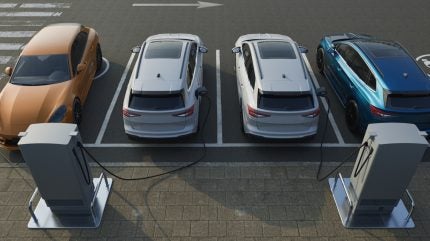
A coalition of electric vehicle (EV) and battery manufacturers has urged President-elect Donald Trump to maintain tax credits for EVs.
The Zero Emission Transportation Association (ZETA), which includes companies like Rivian, LG, Tesla, Uber, Lucid, and Panasonic, emphasised on the importance of these credits for job growth in key states such as Ohio, Kentucky, Michigan, and Georgia.

Discover B2B Marketing That Performs
Combine business intelligence and editorial excellence to reach engaged professionals across 36 leading media platforms.
ZETA executive director Albert Gore highlighted the significance of the tax credits, stating that they are vital for the US to “actually compete to win against China.”
The Trump transition team, however, is reportedly considering ending the $7,500 consumer tax credit for electric vehicle purchases, which has led to a decline in EV and battery maker stocks.
In August, Trump told Reuters that he might consider ending the $7,500 tax credit for EV purchases, stating, “tax credits and tax incentives are not generally a very good thing.”
Automakers have been advocating for the retention of these tax incentives, arguing that they are necessary to meet stringent regulations.
The alliance for automotive innovation also urged Congress to keep the EV tax credits, describing them as “critical to cementing the US as a global leader” in future auto manufacturing.
However, representatives from Tesla expressed support for ending the subsidy during a meeting with a Trump-transition committee.
Meanwhile, Trump has indicated plans to roll back the Biden administration’s emissions regulations, which aim to cut tailpipe emissions by 50% from 2026 levels by 2032.
He could potentially reverse Treasury Department rules that facilitate automakers’ use of the credit or ask Congress to repeal it.
During his first term, Trump sought to repeal the EV tax credit, which was expanded under President Joe Biden in 2022.






